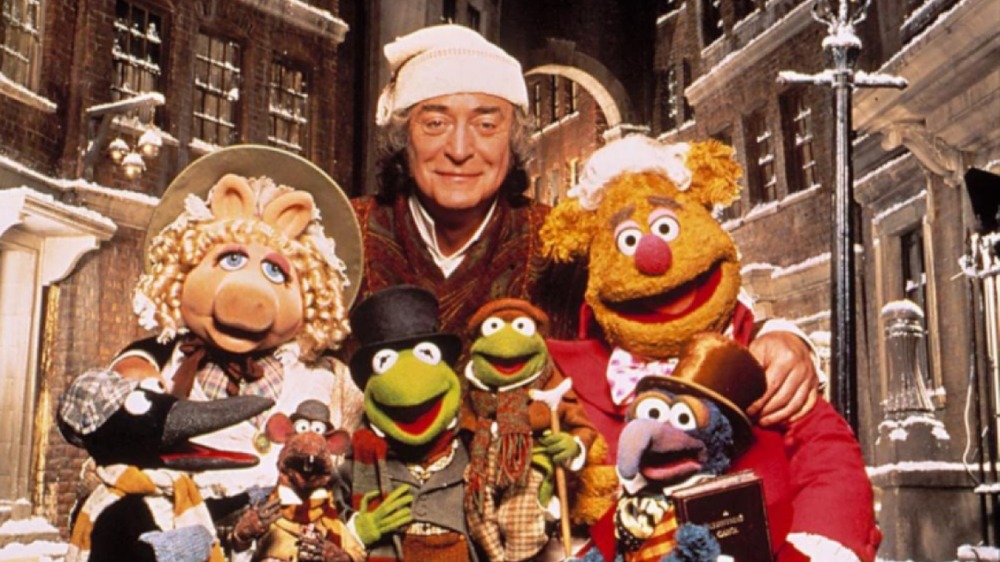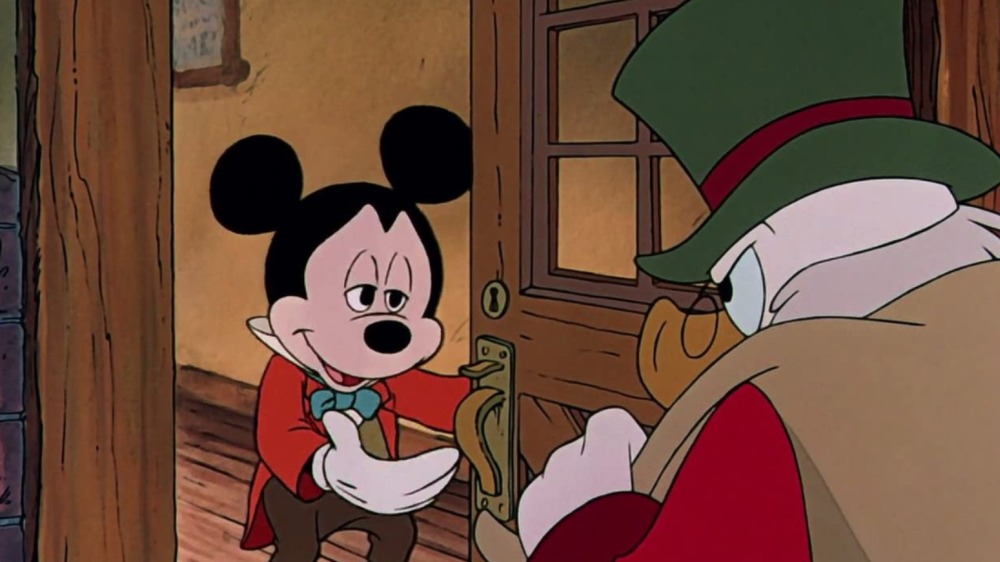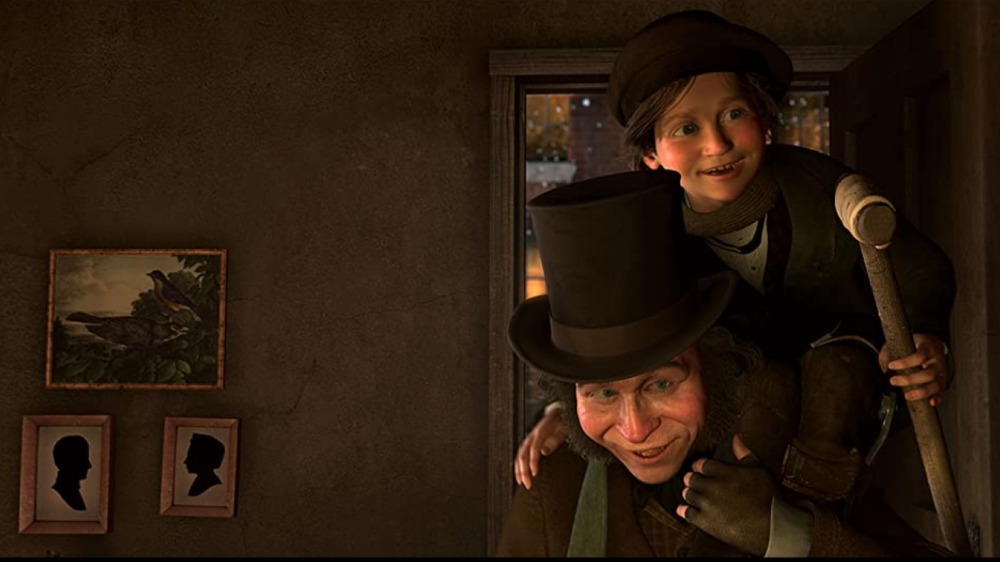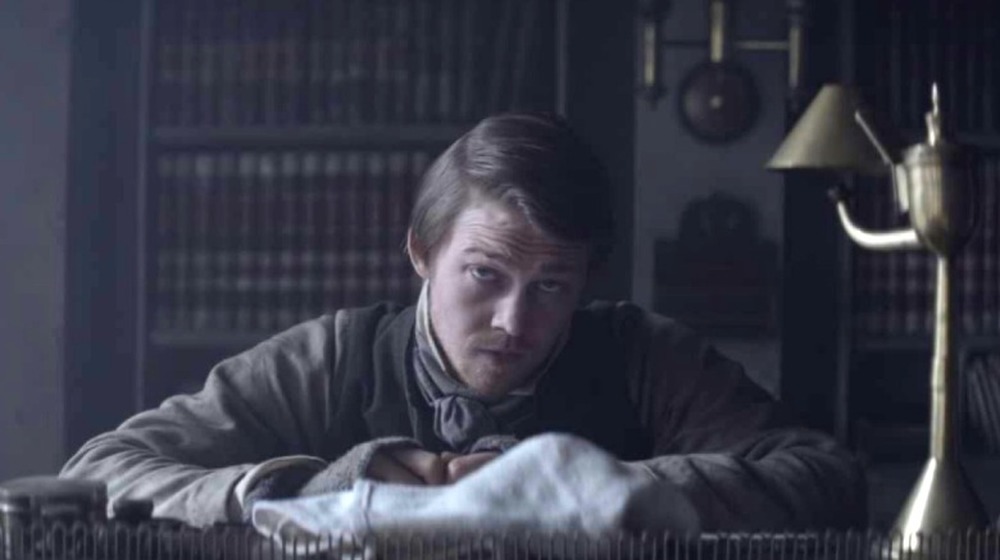What Did Bob Cratchit Actually Do For Ebenezer Scrooge?
Besides, of course, the four spirits who visit him all in the course of one night, the characters from Charles Dickens' A Christmas Carol who have the biggest impact on the transformation of literature's most famous miser Ebenezer Scrooge are the Cratchit family. The patriarch of that family, Bob Cratchit, has famously been depicted in films by such media luminaries as Mickey Mouse and Kermit the Frog, but he is often upstaged by his youngest son, Tiny Tim, who gets the stirring final line of the piece. The effects of Scrooge's personal turnabout are most clearly shown by Scrooge's Christmas Day beneficence to Cratchit and his family, in stark contrast to the way in which he is tight-fisted with coal on the day prior. As far as the text shows, Cratchit is Scrooge's only employee. But what exactly does he do?
Well, in a sense, what Cratchit does is dependent on what Scrooge does. And what is that? As the Library of Congress explains, that's not entirely clear, either. Scrooge (and formerly Marley) is apparently a merchant, but it's never clear exactly what he sells. His activities as a money-lender are much more evident, as he greedily hounds his debtors. The only thing the text ever specifies is that the firm of Scrooge and Marley includes (or is in its entirety) a counting-house, meaning it supplies accounting or bookkeeping services. Anything more than that is left to the reader's (or viewer's) imagination.
Scrooge's poor clerk
Whatever it is Scrooge actually did besides hound people for money and then refuse to let any of his own go, even at Christmas, Bob Cratchit was there to help him do it. When Cratchit is first introduced in the text, he's not even given a name. (The Cratchits don't get mentioned by name until the Ghost of Christmas Present shows Scrooge what they're up to.) He's simply described as "his clerk, who in a dismal little cell beyond, a sort of tank, was copying letters." While clerks originated in medieval times as people in religious positions ("clerk" is related to the word "clergy"), as VictorianLondon.org explains, by Victorian times, it had come to mean anyone "engaged in the departments of trade or business that require the pen."
And so while a clerk might be involved in any level of white-collar office administration work, including accounting, copy-editing, or record-keeping, Bob Cratchit's primary role seems to be as a copyist, copying Scrooge's letters by hand, even when the ink freezes. Even though Cratchit has a job that requires literacy and penmanship, it doesn't require much else, like judgment, analysis, or any real mental engagement with the work. It's a white-collar job, albeit the barrel-bottom level of it for a mere 15 shillings a week, which is a pittance, barely enough to feed Cratchit's family and not enough for him to afford a coat. Cratchit's 15 shillings a week makes 39 pounds a year. By comparison, a Victorian post office clerk made 90 pounds a year.
The life of a Victorian office worker
Although the position of clerk was a white-collar job with relatively high social position compared to more menial physical labor, the BBC explains that the position was often one of mindless drudgery and perpetually ink-stained fingers. Work such as Cratchit's letter-copying "was repetitive and mind-bendingly dull, leaving clerks exhausted by the end of the day." To that extent, they argue, physical labor was preferable to a clerk's job, as it's better to be tired from your work, not of your work. As with Cratchit as well, clerical work often involved long periods of isolation. A British magazine described how during the 1860s, clerks would "disappear mysteriously down passages or into doorways that lead to narrow staircases, some doubtless to little tanks like that in which poor Bob Cratchit toiled under Scrooge's uncharitable eye while others are absorbed into dingy warehouses that look as dreary as prisons."
By the mid-1800s, the position of clerk had lost a lot of the social status that had originally come with being part of the relatively small literate class, and the salary fell, too, as the ranks of office clerks swelled from 140,000 in 1851 to almost a million in 1911. Much of a clerk's wages went to keeping up the appearance of a white-collar lifestyle, including always having a black suit (to hide the ink stains?) and renting a decent house, in which they often had to sublet rooms to manual laborers, who likely earned more than the clerks themselves.
Dickens' obsession with clerks
Bob Cratchit was far from the only clerk that Charles Dickens wrote about. Dickens himself had worked as a law clerk before moving on to journalism and the more profitable career of being one of the most popular novelists to ever live (nice work if you can get it). Writing what he knew, Dickens included a staggering 104 clerk characters over his total bibliography. Even beyond his own familiarity with clerical work, however, Dickens was likely interested in the life of clerks due to his constantly critical view of England's social classes at the time.
As the BBC explains, the position of clerk was an essential step in the establishment of the then-new idea of climbing the corporate ladder. Taking the idea of a hierarchy of positions from the military, employers were able to use promotions and raises as incentives for their lower-middle-class clerical workers to carry on with the tedium of their daily work. The perceived status was a morale boost, while the promise of a promotion to the best worker incentivizes conformity and keeping-your-head-down-and-working-style behavior from your employees. Records from the time show that employers would use any reason at all not to promote their clerks, including physical appearance or the sound of one's voice. Even though this practice developed a little after Dickens' time, this is exactly the kind of social injustice that was normally the target of his most scathing satire. We could all stand to be a little better to the Bob Cratchits in our lives.



